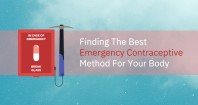
Water is essential for all life on Earth. Every cell in your body requires water as a building material. About 60 percent of the human body is made up of water, so the body needs regular replenishment to keep all systems running (USGS).
Dehydration is caused when there is significant fluid loss and it occurs when your body loses more water than it takes in. Symptoms of dehydration can include dizziness, fatigue, feeling thirsty, dry skin, and dark urine. Mild dehydration can cause many health issues and often goes undetected for long periods. Severe dehydration can be life-threatening.
Recommendations for water intake vary according to “age, sex, pregnancy, and breastfeeding status,” according to the Center for Disease Control. The general recommendation is to drink eight 8-ounce glasses of water every day though there is little evidence to back up that specific amount. Our bodies stay hydrated by consuming water and other liquids as well as by consuming food that also contains water.
There are many health benefits of drinking water, since it keeps the human body running effectively. Dehydration can cause many minor and serious health issues. It’s important to drink water regularly so that if you do have a health issue, you know that dehydration is not the cause. If you are not dehydrated, you may need some form of medication as prescribed by your healthcare provider.
Here are some of the health benefits of drinking water and how it boosts your health:
-
Increases weight loss. Drinking water before meals has shown to increase weight loss among middle-aged and older adults (NCBI). Increased water intake can also boost your metabolic rate. Try drinking 1 to 2 glasses of water about a half-hour before each meal. Drinking water can also help with sugar cravings, since your brain can’t distinguish between thirst and hunger. Drink water before reaching for that piece of cake to see if what your body really needed was water.
-
Reduces bladder infections in women. Studies have shown that drinking water reduces bladder infections, which affect half of women. Women in the study drank 1.5 liters of water each day and reported significant reductions in the frequency or presence of a bladder infection (Science Daily).
-
Fosters healthy digestion. Saliva, which is mainly water, is required for the digestive process to work. Enzymes in saliva help to break down foods. You need adequate water to keep everything moving. Drinking water can help you to avoid constipation, too, as water helps to digest soluble fiber so that it dissolves easily and produces stools that are easy to pass.
-
Helps to manage mental health problems such as anxiety and depression. Dehydration can put a strain on energy and mood levels. By drinking water, you can reduce or eliminate the negative impact of dehydration on energy levels. Studies have shown that increasing water intake can lower the risk of depression. Studies have also shown that drinking water is also associated with a lower risk of anxiety. Staying hydrated can help with the management of symptoms of mental health issues.
-
Prevents kidney stones. No one wants to experience kidney stones if they can help it. Kidney stones are small clumps made up of minerals such as calcium that form in the urinary system. Water can help to dilute the concentration of minerals and salts that build up to form these clumps.
-
Supports skin health. The skin is also an organ that requires regular water intake. Drinking water can help the body to rid itself of impurities and toxins. People report a radiant glow with increased water intake, especially those with acne (UW Health). Water helps to support circulation and blood flow, and can potentially reduce the appearance of fine lines and wrinkles. It can also help to reduce inflammations which can cause flare-ups of acne, psoriasis, and eczema.
-
Reduces the frequency and intensity of headaches as well as migraines. Dehydration can cause or exacerbate headaches and migraines. One study showed that by increasing water consumption, people with frequent migraines were able to experience 21 fewer hours of pain (New York Times). Next time you experience a headache, try increasing your water intake before using medication.
-
Help with temporary erectile dysfunction. If fluid levels are too low, dehydration can occur, causing issues such as ED. With better hydration, there is an increase in blood cells and plasma, which supports blood flow. Dehydration also increases blood pressure, which has a negative impact on blood flow (Healthline).
-
Prevents hangovers. Since alcohol is a diuretic, alcohol consumption causes you to lose more water than you are taking in. Drink a glass of water in between glasses of alcohol and make sure to drink a large glass of water before you go to bed. Drinking water while you consume alcohol can mitigate some of the strain on your body from alcohol consumption. This can help you get back to hangover-free life much more quickly.
-
Helps to manage Chronic Obstructive Pulmonary Disease. People who have COPD will experience increased mucus production and may cough up excess mucus. Staying hydrated can help to thin the mucus and make it easier to get it out of the lungs. Hydration can also help people with COPD to fight off infections (Lung Institute).
-
Supports effective exercise. Drinking water before, during, and after exercise helps you to work out longer and to avoid muscle cramps. Hydration keeps joints lubricated and supports body temperature regulation. Your body loses water through sweat and by working hard to cool itself down during physical exertion. Replace those fluids so you can work out longer, maintain a healthy body weight, and enjoy the health benefits of regular exercise.
If you struggle to drink enough water because you don’t like the taste, there are many ways to enhance the flavor. First, starting the day with a warm glass of lemon water is a great way to boost your energy and aid digestion.
For cold, plain water, you can add fresh herbs like mint, fresh fruit, such as cantaloupe or strawberries, or even vegetables such as cucumbers (technically a fruit, but everyone considers it a vegetable!). You can also enjoy many water-dense foods, such as watermelon, radishes, celery, and tomatoes.
An easy way to check if you are drinking enough water is by looking at the color of your urine. If the urine is dark yellow, you need to drink more water. The ideal color is pale, light yellow (BBC).
Drinking water provides a variety of health benefits. It facilitates and regulates many systems in the body. Water helps to take care of your body and prevent or reduce many health issues for men and women. These issues include obesity, kidney stones, bladder infections, ED, constipation, COPD, and anxiety.
Support all the incredible functions of your body and boost your physical and mental health by drinking plenty of water. Staying hydrated is the best way to get ahead of or manage a variety of health issues.







